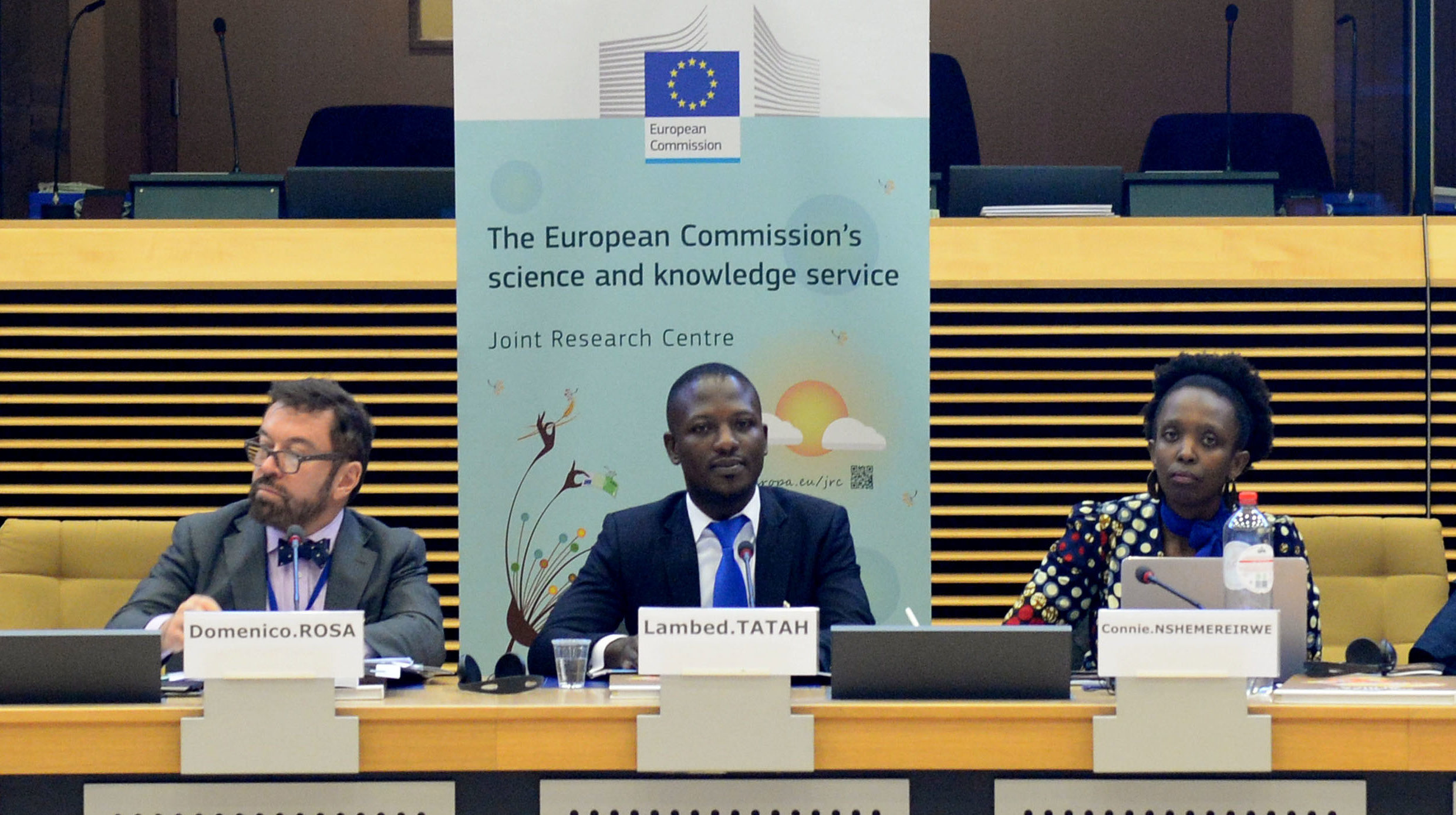On Friday 27 October 2017 GYA member Connie Nshemereirwe attended the launch of the EU Joint Research Council (JRC) report titled Science for the African Union-European Union Partnership: building knowledge for sustainable development.
The purpose of the event was to present the JRC’s wide-ranging research work on Africa and engage a discussion with policymakers, scientists and other stakeholders. The event, part of the EU’s commitment to implementing Agenda 2030, recognised that a key aspect of this commitment is basing policy decisions on robust evidence, impact assessments, and adequate monitoring and evaluation.
Connie’s main contribution was to note that one of the most urgent issues requiring attention deals with the curricula of African Education Systems. According to UN population projections, by 2050 one in every four people on earth will be African, half of whom are yet to be born. We therefore need to create an education system ready to provide the skills needed to carry on the post-2030 agenda and ensure that Africa is a prosperous and peaceful continent. To succeed in this regard, it will be necessary to tap into indigenous knowledge systems, as well as promote the inclusion of more African history, for example, UNESCO’s General History of Africa Project.
At more than 300 pages, the report is an overview of the findings and lessons learned over 30 years of research partnership under the Joint Africa-EU Strategy (JAES). Organised around the SDG focus areas of People, Planet, Prosperity and Peace, the report contains findings on research in areas as diverse as population and migration, disaster risk, maritime security, and digital infrastructures. The report also identifies crossover issues such as Research and Innovation, Knowledge Sharing, Earth Observation and Geo-information Systems, and Building Resilience for Sustainable Development, all of which are key to achieving Agenda 2030.
The panel in which Connie participated was convened to comment on and contribute to the discussion, and was guided by the following questions:
- To ensure sustainable development in Africa, what are the key (current and future) challenges and priority areas where we need to deepen scientific evidence?
- What are the challenges to using scientific evidence for policymaking and implementation?
- How can we improve scientific capacities when addressing the AU-EU Partnership’s priorities? Can the JRC help?
The report will be a valuable addition to the knowledge base on a large number of issues about which many African countries currently lack data. The future of the EU-AU research partnership also holds great promise for sparking a continental data revolution, which is key to monitoring progress towards Agenda 2030. For further information, you can contact Connie through her GYA profile.
